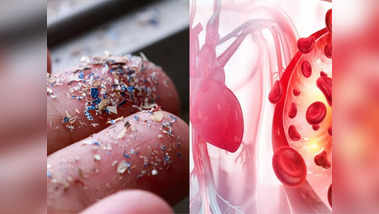Scientist Discovery: Microplastics Detect In Human Male Genitals

By Fatima Saka
A recent study published in IJIR: Your Sexual Medicine Journal has revealed the presence of seven distinct types of microplastics in the penile tissue of five men, four of whom were found to have these particles in their samples.
Microplastics are minute polymer fragments, ranging from less than 0.2 inches (5 millimeters) to 1/25,000th of an inch (1 micrometer), with anything smaller classified as nanoplastics. Source: CNN .
These particles are the result of the breakdown of larger plastics, either through chemical degradation or physical wear.
Experts suggest that some of these tiny particles can infiltrate individual cells and tissues in vital organs, with mounting evidence pointing to their increasing presence in the human body. Lead author of the study, Ranjith Ramasamy, an expert in reproductive urology, noted that microplastics were not an unexpected finding in the penis due to its high vascularity, similar to the heart.
The samples were collected from individuals undergoing surgery for erectile dysfunction (ED) at the University of Miami between August and September 2023. Chemical imaging of the samples highlighted the presence of microplastics in four out of the five men, with polyethylene terephthalate (PET) and polypropylene (PP) being the most prevalent types.
Further research is essential to explore potential links between microplastics and conditions such as ED, as well as to determine the harmful levels and types of microplastics that may lead to pathology, according to Ramasamy.
The study also underscores the importance of raising awareness about the presence of foreign particles within human organs and encouraging more research in this area. Previous studies have shown that bottled water can contain a significant number of plastic particles, urging caution in consuming water and food from plastic containers until more research is conducted to establish safe levels.
Toxicologist Matthew J. Campen emphasized the need to understand the health implications of plastics, given that they may disrupt normal bodily functions, including those related to erection and sperm production. His research has shown that human testicles contain higher levels of microplastics compared to animal testes, highlighting the pervasive nature of plastics in the human body.
Taking steps to reduce plastic exposure, such as using stainless steel and glass containers, avoiding microwaving food in plastic, and refraining from putting plastic in the dishwasher, can help minimize the intake of microplastics, according to experts.





